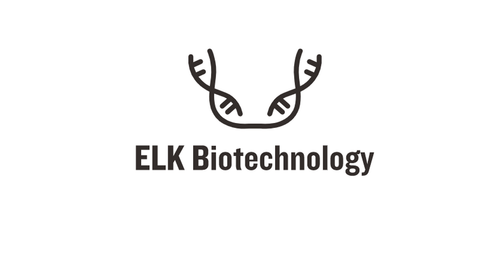Product Description
Mouse Matrix metallopeptidase 7 (MMP7) ELISA Kit | AE63240MO | Abebio
Species Reactivity: Mouse (Mus musculus)
Abbreviation: MMP7
Alternative Name: MMP-7; MPSL1; PUMP-1; matrin|matrix metalloproteinase 7|matrix metalloproteinase 7 (matrilysin; uterine) |uterine matrilysin
Application: ELISA
Range: 15.6-1000 pg/mL
Sensitivity: 6.4 pg/mL
Intra-Assay: ≤5.2%
Inter-Assay: ≤9.7%
Recovery: 1, 01
Sample Type: Serum, Plasma, Other biological fluids
Detection Method: Sandwich
Analysis Method : Quantitive
Test Principale: This assay employs a two-site sandwich ELISA to quantitate MMP7 in samples. An antibody specific for MMP7 has been pre-coated onto a microplate. Standards and samples are pipetted into the wells and anyMMP7 present is bound by the immobilized antibody. After removing any unbound substances, a biotin-conjugated antibody specific for MMP7 is added to the wells. After washing, Streptavidin conjugated Horseradish Peroxidase (HRP) is added to the wells. Following a wash to remove any unbound avidin-enzyme reagent, a substrate solution is added to the wells and color develops in proportion to the amount of MMP7 bound in the initial step. The color development is stopped and the intensity of the color is measured.
Product Overview: MMP7, also known as Matrilysin, is the smallest member of the MMP-family, it is a zinc-dependent metalloproteinase and is overexpressed in colon cancer and many other human cancers. MMP7 is a secreted matrix metalloproteinase, which contributes to angiogenesis by breaking down basement membranes. Matrix Metalloproteinases (MMPs) belong to a family of secreted or membrane-associated zinc endopeptidases capable of digesting extracellular matrix components.MMP7 is responsible for hydrolyzing proteoglycans and ECM glycoproteins. It is expressed in normal cells, specifically glandular epithelial cells. MMP7, is thought to play an important role in the early steps of tumor progression. Expression of MMP2, MMP7 and MMP11 is greater in pancreatic carcinoma than in normal pancreas.
Stability: The stability of ELISA kit is determined by the loss rate of activity. The loss rate of this kit is less than 5% within the expiration date under appropriate storage condition. The loss rate was determined by accelerated thermal degradation test. Keep the kit at 37°C for 4 and 7 days, and compare O.D.values of the kit kept at 37°C with that of at recommended temperature. (referring from China Biological Products Standard, which was calculated by the Arrhenius equation. For ELISA kit, 4 days storage at 37°C can be considered as 6 months at 2 - 8°C, which means 7 days at 37°C equaling 12 months at 2 - 8°C) .
 Euro
Euro
 USD
USD
 British Pound
British Pound
 NULL
NULL












